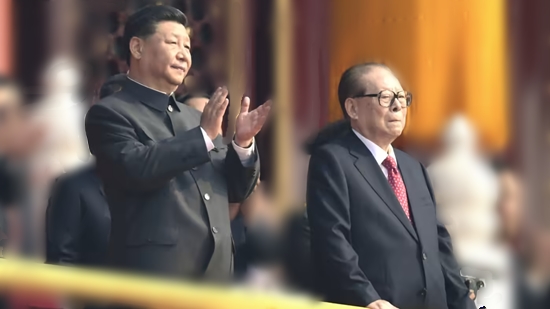
Frank Dikötter, historian of modern China, says Xi Jinping is nothing new as Chinese dictators go, even if he has more clout than some of his predecessors. Dikötter tells Radio Free Asia (“Interview: How the West has been misreading China for years,” February 24, 2024):
The difference is Xi Jinping has what others didn’t have. He’s got much greater clout. Xi Jinping…merely says what all his predecessors have said very consistently since 1949. He is no different from any of his predecessors. He’s not a creator; he’s a follower. In fact, he’s created very little. If you want me to come up with a creator who created the most, it’s Jiang Zemin who came up with the idea of going out and establishing factories abroad, not just inside China. He emphasized the importance of Xinjiang as a strategic region. Jiang Zemin is the one who inserted party committees inside private enterprises. He is the one who emphasized from the summer of 1989 onwards, the great threat posed to China by peaceful evolution.
Xi Jinping has faithfully followed all the measures introduced by Jiang Zemin. It is not Xi Jinping who introduced party committees into private enterprises. It was Jiang Zemin. It’s not Xi Jinping who clamped down on Western culture. It was Jiang Zemin. Jiang was the one who joined the World Trade Organization, so all of this has been followed quite faithfully.
What does Xi’s greater clout consist of? Are his uses of power distinctive? Voice of America suggests “10 Ways China Has Changed Under Xi Jinping.” These include an anticorruption campaign that “has also been a useful tool for eliminating political opponents,” taming borderlands like Xinjiang and Hong Kong, greater state control of the economy, and expansion of censorship, efforts that Xi and his allies would regard as effective use of dictatorial power. But at least in outline, they are not particularly innovative or unprecedented; they are more of the same saturating oppression.
Dikötter also says that the assumptions of some onlookers to the contrary, China was never on a road, after “opening up,” to become “first a capitalist country and then a democracy.”
All along, they [Chinese leaders like Deng Xiaoping, Hu Yaobang, Zhao Ziyang, and Jiang Zemin] were very clear about what they wanted. They wanted to reinforce the socialist economy. So what is a socialist economy? [It’s] not necessarily something that you have under Mao. A socialist economy is one where the state has or controls the means of production.
Money, labor, fertilizer, energy, transportation, all these are the means of production. They all belonged to the state. Today the money belongs to state banks. The land belongs to the state. Energy is controlled by the state. Large enterprises are controlled by the state. That was their goal, and they achieved it.
Among other works, Dikötter is the author of the so-called People’s Trilogy about China under Mao: Mao’s Great Famine, The Tragedy of Liberation, and The Cultural Revolution.
Also see:
The Diplomat: “Frank Dikötter on How China Changed (and Didn’t) After Mao”
“In 1957 the American Secretary of State John Foster Dulles came up with the notion of ‘peaceful evolution.’ He suggested that the World Bank and other organizations should economically assist satellite states of the Soviet Union in the hope that, with economic progress, they would evolve peacefully towards a democratic system.
“This is precisely what happened on June the Fourth, 1989, when the people in Poland voted the Communist Party out of power at the ballot box. Hungary and other East European countries followed. Beijing was taken aback, and in the summer of 1989 Jiang Zemin made ‘peaceful evolution’ one of the key threats to the rule of the Communist Party. It is still seen as a great peril today.”





